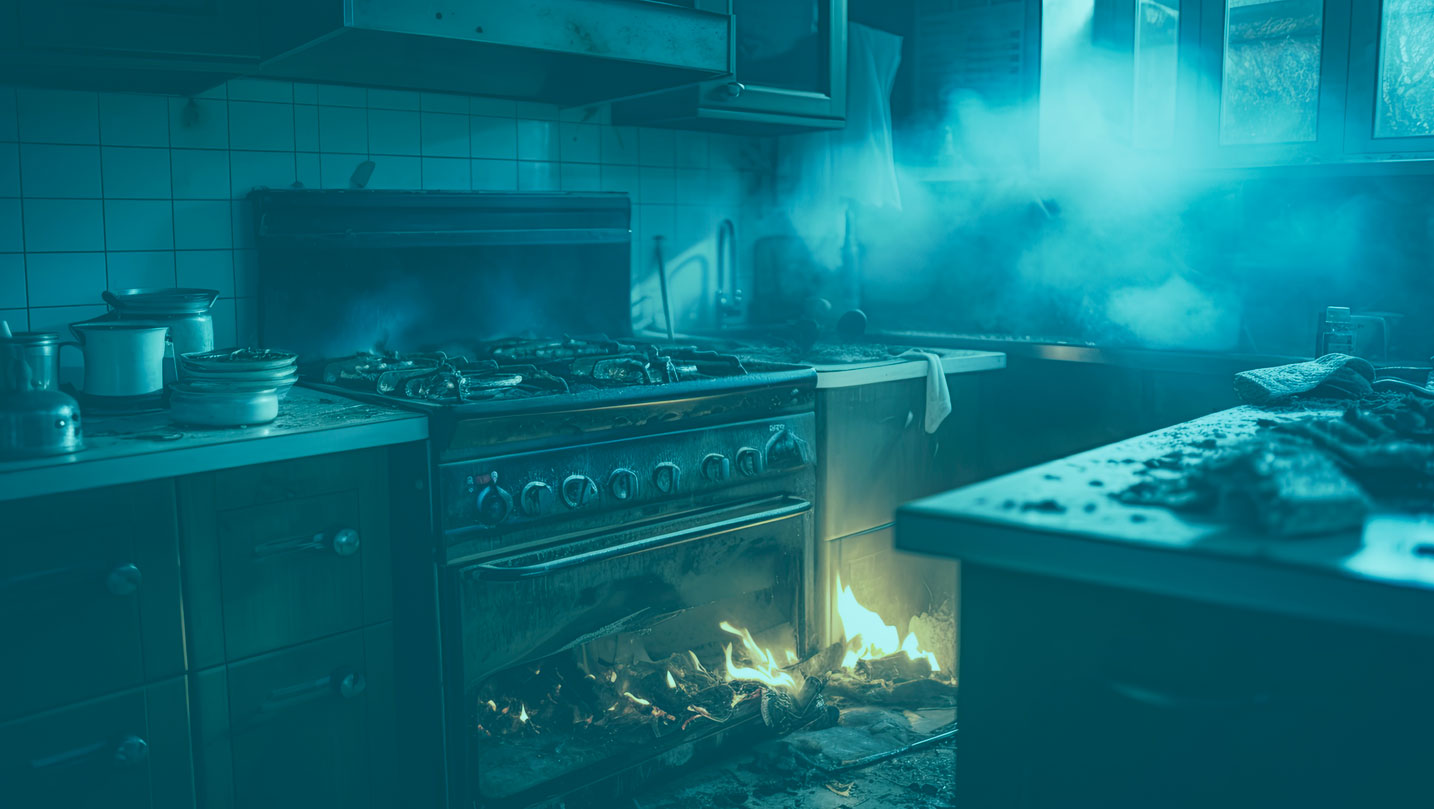Fire Prevention Week 2023 is here, and this year’s theme, “Cooking safety starts with YOU,” sponsored by the National Fire Protection Association (NFPA), reminds us of the critical role we all play in preventing fires, especially in the heart of our homes: the kitchen. At VYRD Insurance, we are here to support you on your journey to a safer and more secure home. Together, we can make a difference in fire prevention.
- Be Attentive and Present in the Kitchen: One of the most effective ways to prevent kitchen fires is to stay in the kitchen while cooking. Distractions, even for a short moment, can lead to accidents. Whether you’re simmering, baking, or frying, always keep a close eye on your cooking.
- Keep Flammable Items Away: Clear your cooking area of any flammable items such as dish towels, paper towels, oven mitts, and wooden utensils. Make sure your stovetop and oven are clean and free from grease buildup, as grease is highly flammable.
- Use Cooking Timers: Set timers to remind yourself when food is cooking or when a cooking task needs your attention. This can prevent food from burning or boiling over and causing a fire hazard.
- Use Appliances Safely: Double-check that your appliances are in good working condition. Avoid overloading electrical outlets, and unplug small appliances when they’re not in use. Keep appliance cords away from hot surfaces and water.
- Don’t Overheat Cooking Oils: Hot cooking oil can quickly become a fire hazard. Use a thermometer to monitor the temperature and never leave oil unattended on the stove. If a grease fire does occur, never use water to extinguish it; instead, use a fire extinguisher.
- Keep Children and Pets Away: Children and pets are naturally curious and may be attracted to the kitchen while you’re cooking. Keep them at a safe distance from the stove, oven, and hot surfaces to avoid accidents.
- Have Fire Safety Equipment Ready: Make sure your kitchen is equipped with a working smoke alarm and a fire extinguisher rated for kitchen use. Check these devices regularly and replace batteries as needed.
- Be Prepared for Emergencies: Even with precautions, accidents can happen. Have an escape plan in case of a fire. Know the primary and secondary exits from your kitchen and home, and practice fire drills with your family.
- Learn How to Put Out a Grease Fire: If a grease fire does occur, remember to never use water. Instead, use a fire extinguisher specifically designed for grease fires or smother the flames with a metal lid or baking soda.
